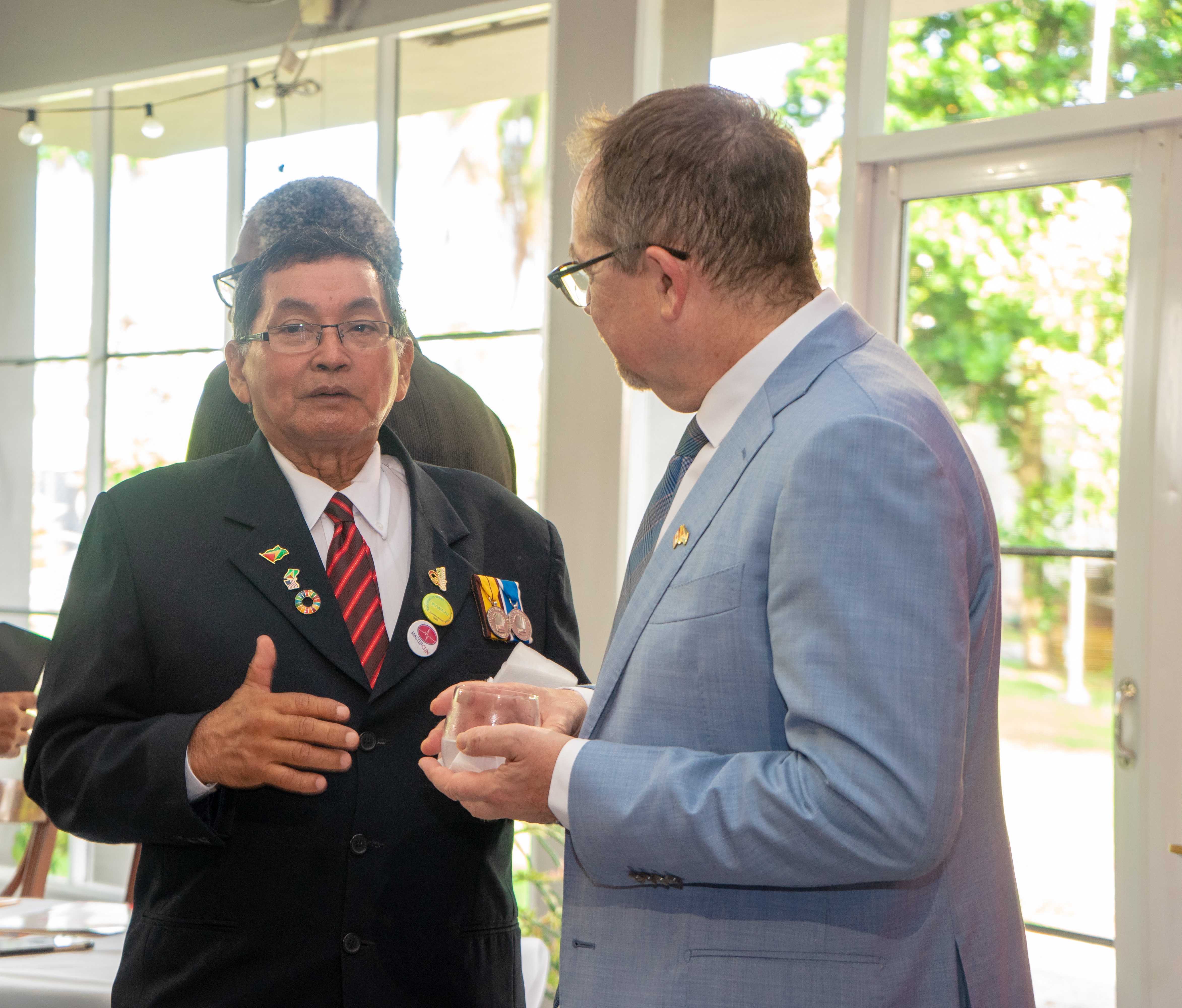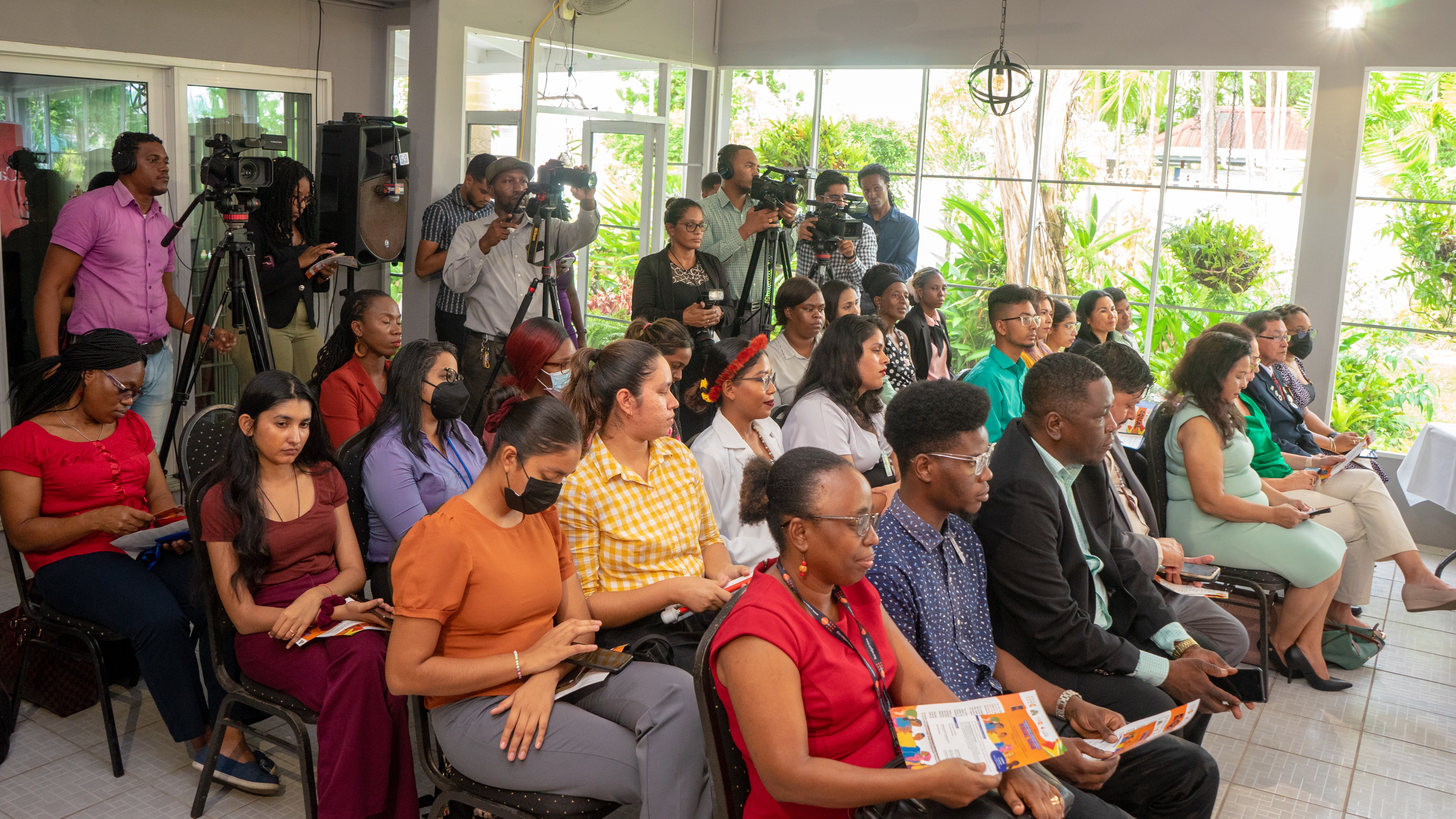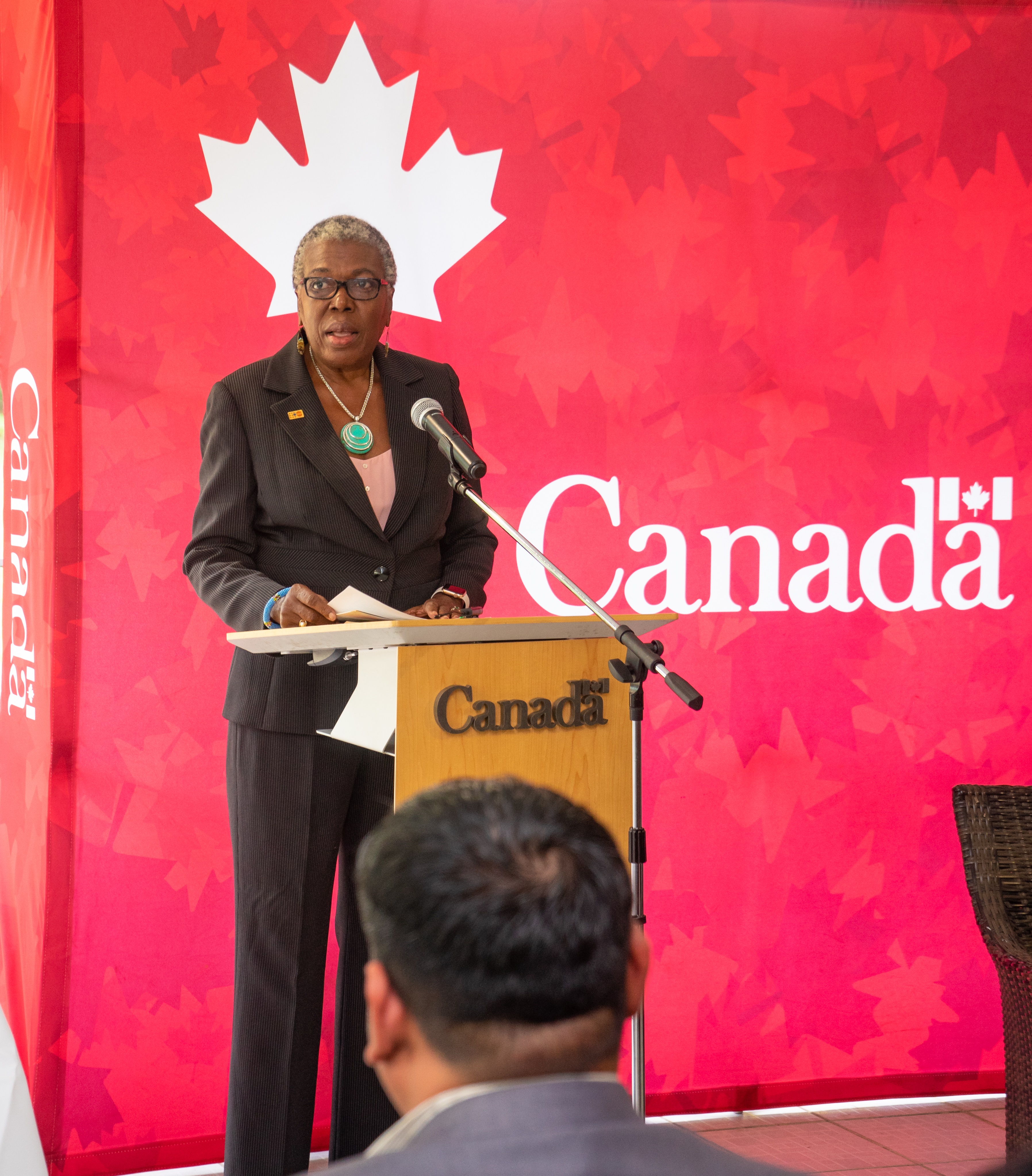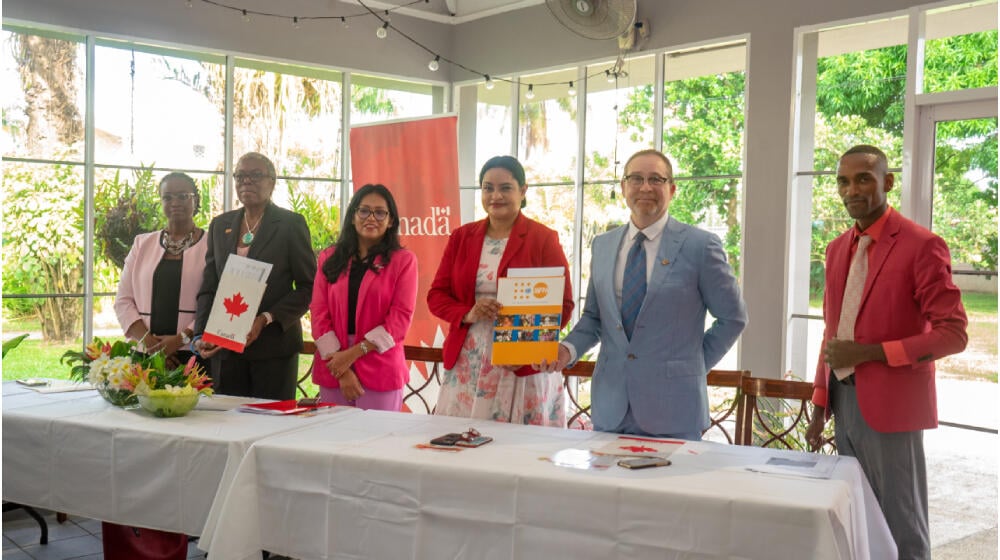The launch of the Enhancing Quality, Access, and Logistics of Sexual and Reproductive Health and Rights (EQUAL SRHR) project for Guyana was held in October. A similar launch was hosted in Trinidad and Tobago who is also benefiting from this initiative being supported by the Government of Canada.

As the Sexual and Reproductive Health agency for the United Nations, UNFPA continues to be committed to the central, transformative promise of the 2030 Sustainable Development Goals to leave no one behind. Therefore, this project aims to improve the quality and accessibility of sexual and reproductive health and rights services, particularly for survivors of sexual and gender-based violence (GBV).

Jewell Quallo Rosberg, UNFPA SROC’s then Officer-in-Charge, said that she was encouraged by the fact that the main objective of this project is to protect women and girls in Guyana, including indigenous women and girls and migrants from Venezuela.

“Simply put, we aim to improve access to the services for women, girls, and vulnerable groups, essentially those who are usually most at risk,” she stated. Some of these vulnerable groups include persons of diverse gender identity, gender expression and/or sexual orientation, persons living with disabilities, and sex workers.
UNFPA remains dedicated to supporting the Caribbean to achieve three transformative results by 2030: zero unmet need for contraception; zero preventable maternal deaths; and zero gender-based violence and harmful practices.


